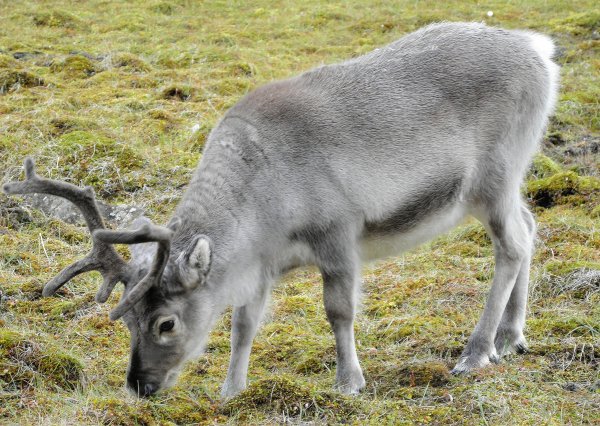
25 June 2013
Last weekend the solstice reset our annual biological clocks. On a daily basis the sun triggers our circadian rhythm. But what if we lived where the sun never sets? How would we synchronize our daily internal clocks?
In mammals the circadian rhythm increases melatonin at night and drops it during the day. This happens whether or not the sun gives us a cue.
In the arctic where day and night last for months this circadian rhythm would be annoying if not a handicap. Since “day” has no meaning, arctic reindeer solved the problem by turning off their internal 24-hour clocks.
Scientists studying reindeer in Norway (Rangifer tarandus, the same species as caribou) found that they have no rhythmic melatonin cycle. Instead their melatonin rises or falls abruptly in response to light. It’s on or off. They don’t have a daily clock.
Reindeer need to know the time of year so they can synchronize migration and breeding so their bodies cue on sunrise and sunset at the equinox. On Svalbard, where this reindeer lives, the sun rose on April 16 and won’t set until August 27.
Reindeer don’t care what time it is. Some days I wish I didn’t care either.
Read more about this study in Science Daily, March 2010.
(photo of a Svalbard reindeer, a subspecies of Rangifer tarandus, from Wikimedia Commons. Click on the caption to see the original)
The solstice is a significant date for things botanical, as well. A time to shift gears as it were………. from growth and development to ripening. An example: The onion. Up until the solstice, all the onion’s energy is directed toward development of the bulb and foliage. After the solstice, the foliage gradually dries and dies,and the bulb quits growing and begins the ripening process. Dates are dynamic!